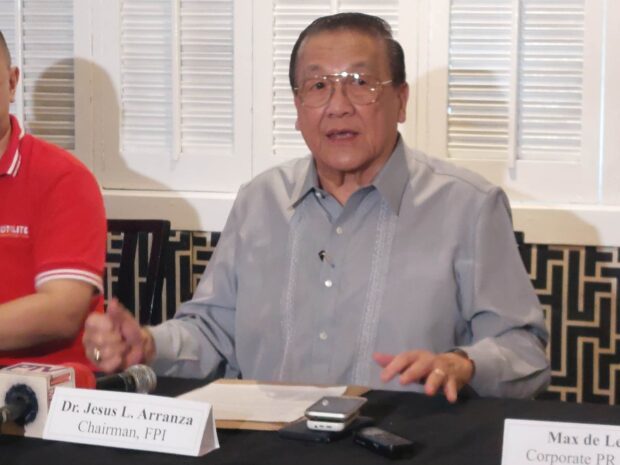
MANILA -A trade association of manufacturers on Wednesday appealed to the government to ban the exportation of used lead-acid batteries (ULAB), saying the practice is hurting local industries that depend on these recyclable products.
Citing data from the Philippine Statistics Authority (PSA), Federation of Philippine Industries (FPI) chairman Jesus L. Arranza said 8,500 tons of lead waste and scrap were exported by the Philippines from January to August last year.
“The law says that if the country has recycling operations or plants, then its exportation is prohibited. Why? Because you have to help the industry finance their operations,” Arranza said in a press conference in Makati.
“If the input of the used battery will be less, recycling firms will have higher input costs and will be less financially viable,” he added, explaining that less materials circulating locally means Philippine firms would have to import more batteries or battery materials.
The FPI official also said that scrap lead is mainly obtained from ULABs, estimating that exporters were able to get hold of 500,000 pieces of ULAB weighing 15 kilograms per unit.
Arranza said this practice was also against the law, citing in particular Republic Act No. 6969 or the “Toxic Substances and Hazardous and Nuclear Wastes Control Act of 1990.”
“As a matter of policy, export of hazardous wastes like lead scrap and ULAB is not allowed when the country of origin has the capability to recycle them,” the FPI official said.
He said they found it alarming that the Department of Environment and Natural Resources (DENR) had told the group that it did not issued any export clearance to any company to ship out lead scrap.
“If there is no clearance from the DENR, how did these shipments manage to slip through the Bureau of Customs and even got reflected in the PSA export data? Also, how come there is no record from the DENR and the Department of Trade and Industry of who these exporters are?” Arranza said.
Further, he said the export of these goods could be negatively impacting the environment, saying that it remained uncertain whether the plastic components or the acid contents were disposed of properly.
“We don’t know if these exporters are handling and dismantling their ULABs, which are hazardous wastes,” he said.
In this aspect, Arranza said they have partnered with the Oriental & Motolite Marketing Corp (OMMC), which is known for its vehicle battery brand Motolite, to help ensure that the ULABs that FPI members use were disposed of and recycled properly.
Under the agreement, FPI will promote Motolite’s “Balik Baterya Program” to its members and will sell collected ULABs to OMMC.
“We are, thus, calling on all our members and partner-organizations to support us in this advocacy by making sure their old batteries are going to a reputable recycler like EERI. This, in itself, is already a good way to show we truly care for the environment,” Arranza said.

